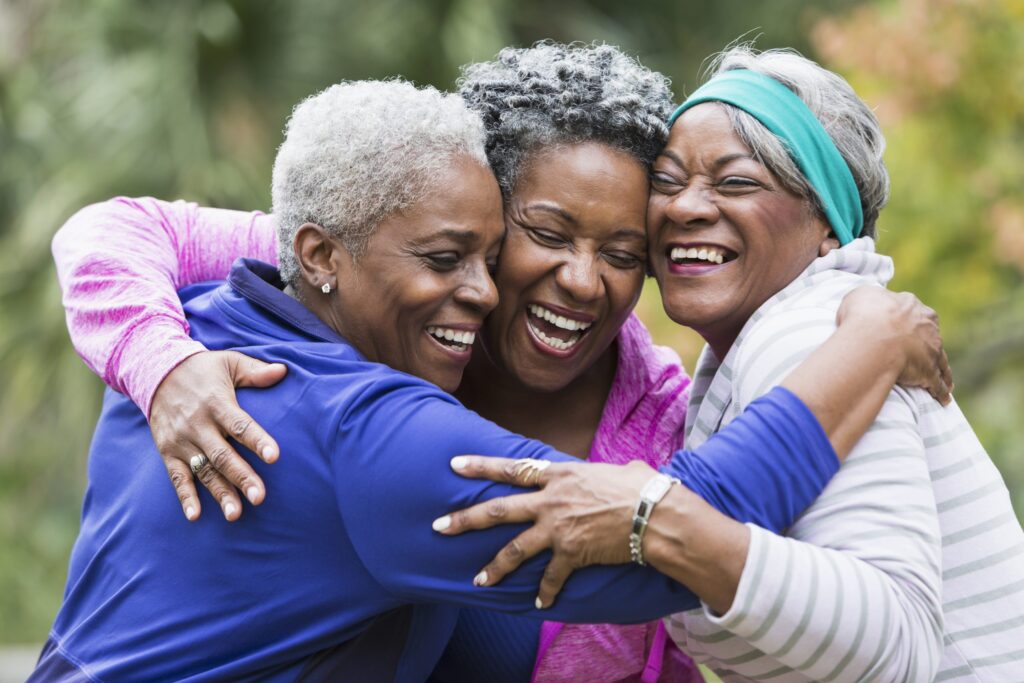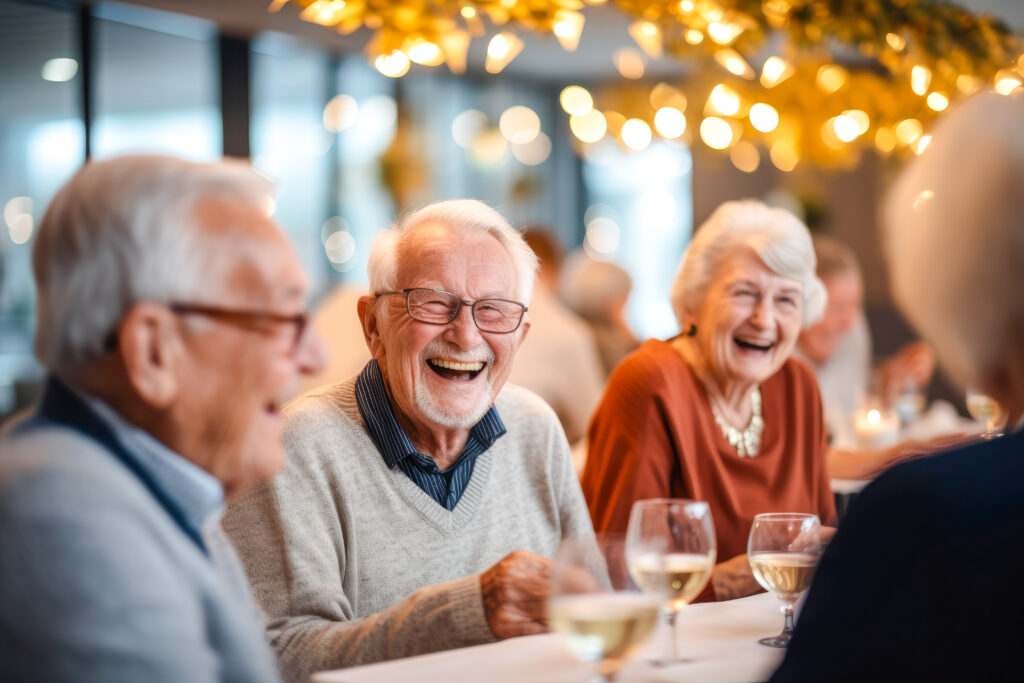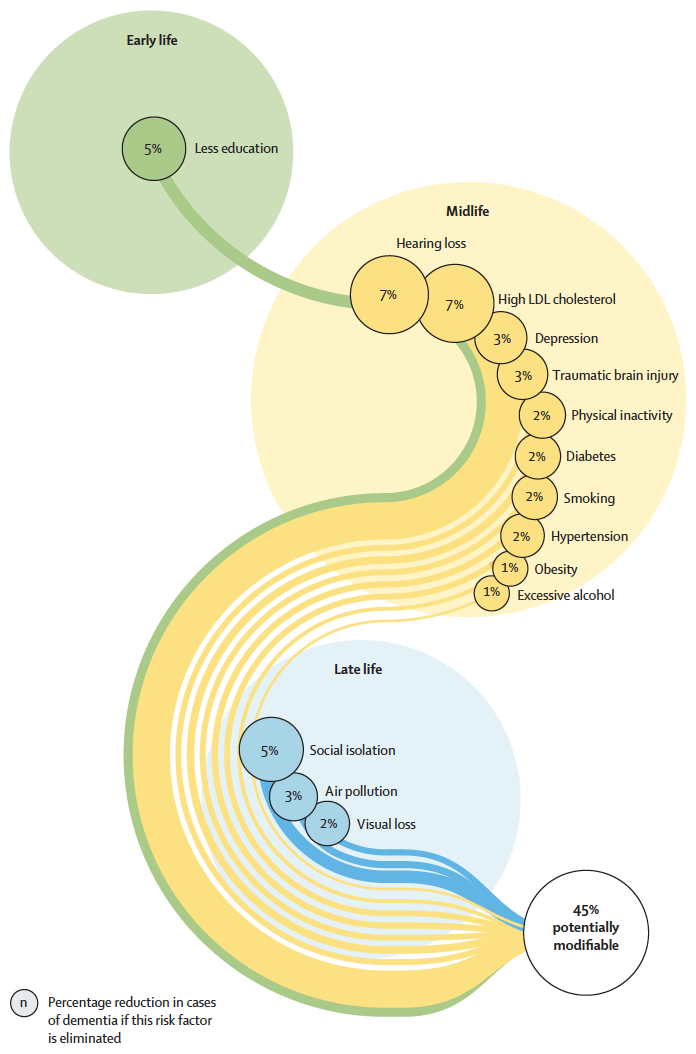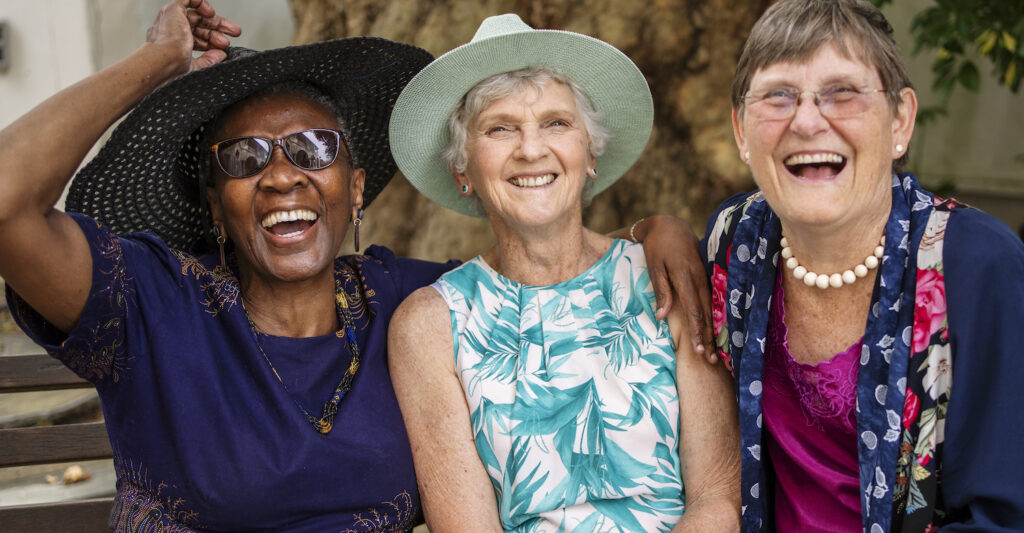
What’s The #1 Secret To Building Better Community Brain Wellness? Friendships
To paraphrase a popular classic tune, friendship and brain health are the perfect “blendship.” In celebration of American Heart Month, let’s take a look at some of the heartwarming ways friends help our brains thrive.
Friends are our partners in crime.
Being active and engaged across body, mind, and spirit is essential to maintaining sharp thinking, reducing dementia risk, and staying vital. Finding what we love to do, whether familiar or new, also supports personal growth, emotional wellbeing, and purpose. Having a friend – or two or three! – who share our goals makes it much more likely we will do the things that keep our brains healthy, whether it’s getting out for a walk, trying a new class, or taking a trip on our bucket list. Having a “partner in crime” can make it much easier to achieve our brain fitness goals and stay motivated along the way.
As professionals, we can encourage folks to find some brain boosting buddies by helping clients connect along common interests. Try a speed “meet and greet” or activities that might draw folks with specific interests with am ple opportunity to get to know each other, such as a walking trip or volunteering in a soup kitchen.
Friends keep us on our thinking toes.
Want a great way to give your thinking skills a good workout? Try talking to a friend. Research shows our intellectual abilities such as attention and memory can be maintained and even improved with practice, no matter how old we are. We don’t need a computer game to do that! A good conversation with a buddy can capture our attention, get us thinking fast, and force us to be flexible in our thinking to keep up with each other. We must remember what they said and hold onto what we want to say – and wait our turn to boot. In addition, friendships shore up our social skills, so that when we meet new friends or even acquaintances, we can feel more comfortable in our ability to connect.
Support the cognitive challenges friendships bring by offering social-based brain training, with workouts that combine the power of informal socializing and formal cognitive workouts to capture the full range of benefits both can offer. Use programs that actively ask folks to work together, such as a collaborative game in the classroom or a points-based challenge that awards extra “points” when they work together.
Friends make us happy.
A recent study by the technology company K4Connect found residents see their friendships and connections with others as an important measure of their happiness. Doesn’t that just make sense? As social creatures, we like to feel connected and supported. Having friends provides that sense of belonging, which in turn is an important part of promoting our wellbeing. This matters from a brain fitness perspective, as does the ways friendship can buffer emotional distress, boost our sense of self-worth, and make it easier to value ourselves as we grow older. Finally, the K4Connect study found that folks who have friends in their community are more likely to stick around. This suggests that focusing less on attendance and more on helping everyone find their friends is not only good for their brains and wellbeing, but also for your bottom line.
Try celebrating the love of friendship this Valentine’s Day with some creative ways to highlight what friendship means to us and chances to make new ones. And look to add activities to your calendar that explore aspects of personal growth. Seek programs that give clients the chance for meaningful exploration and common experiences around topics such as ageism, building resilience, and self-discovery in our third age. They can be a wonderful way to connect, especially for those in a communal setting who may not know each other well.
Here’s to the many ways friendship warms our minds and hearts, at every age!



